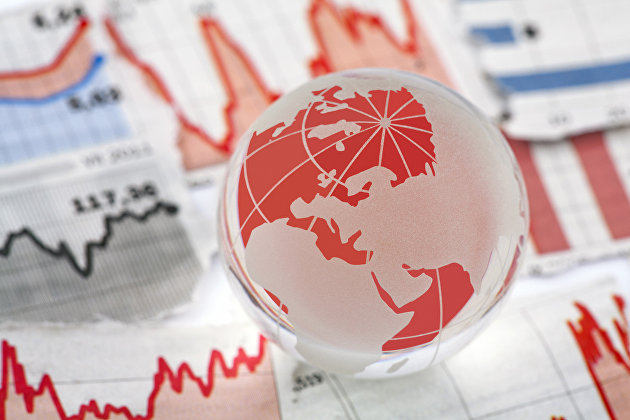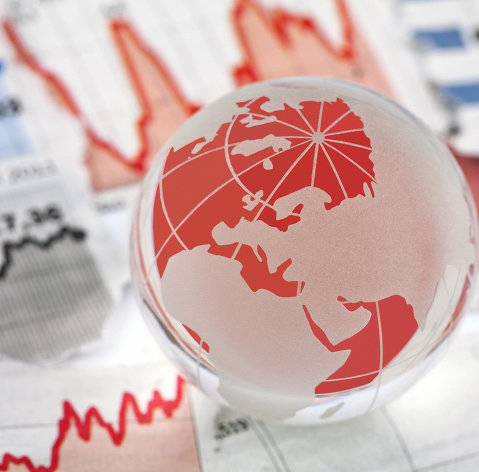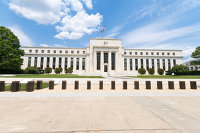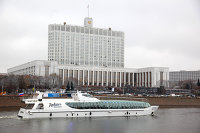The last fight of the Fed. What will QE and zero rate lead – Prime, 03/16/2020
. The decision of the US Federal Reserve System to reduce the rate to zero and officially start quantitative softening will temporarily support the markets before stabilizing the position with … Prime, 16.03.2020
The last fight of the Fed. What will QE and zero rate lead to


Moscow, Mar 16 – Prime, Nadezhda Afanasyeva. The decision of the US Federal Reserve System to reduce the rate to zero and officially start quantitative softening will temporarily support the markets before stabilizing the position with coronavirus. However, if the situation develops according to a negative scenario, the regulator has deprived itself of the opportunity for further decrease, experts surveyed by Prime agency believe.
The Fed has decided from March 16 to lower the key rate to 0.00-0.25% against the background of coronavirus. In addition, the regulator will additionally redeem the paper for $ 700 billion in the coming months.
According to the statement, Fed, sets itself the task of ensuring maximum employment of the population, stable prices, and avoid increasing inflation. The committee will leave such a bet to complete confidence that the country's economy overcame the consequences of recent events.
US President Donald Trump welcomed a reduction in the rate. “I congratulate the Fed with this. This is wonderful for our country,” he said at a press conference.

WSJ: The Fed has taken measures so as not to allow coronavirus to drive the US economy into a recession
Against this background, the Canadian Bank, the Bank of England, the Bank of Japan, the European Central Bank, the US Federal Reserve and the Swiss National Bank made a coordinated decision to expand liquidity within the framework of swaps in the US dollars, reducing the rally on 25 basic points. The new swing rate will be OIS (Overnight Index SWAP) +25 basic points.
The regulators also agreed to offer American currency with an 84-day repayment period in addition to operations with a weekly repayment period, currently carried out.
FRS relies on zero
Most analysts evaluate the decision of the Fed positive in and believes that it was accepted in a timely manner.
The regulator is ahead of the advance, since so far large bankruptcies and defaults have not been noted, the BCS Broker BCS Broker stock market notes.
The last statistics from the USA suggest that the country's economy continues to grow. Nevertheless, the distribution of coronavirus has already led to a fall in stock markets, sensitive to expectations. And the data from China showed that the slowdown in growth due to coronavirus can be very fast, said the chief analyst of Promsvyazbank Dmitry Monastyrshin.
Such serious measures frightened the market participants in their scale: even after the bankruptcy of Lehman Brothers in 2008 and the collapse of the mortgage market, the discount rate was not at such a low level of 0.25%.But it is better to let these measures already be in action in the context of an increase in panic, ”says Koroev.
Otherwise, the senior analyst of Uralsib Bank Irina Lebedeva believes. According to her, the effectiveness and the need to reduce the rate to zero remains in question.
On the one hand, the epidemic can have a negative, but short -term impact on the economy. In this case, the growth will quickly recover. On the other hand, if the situation will develop according to a negative scenario, yesterday’s decision of the Fed has deprived itself of the opportunity to further mitigate the rate, she believes .
The question also raises the period during which such a soft monetary policy will be carried out, Lebedeva notes. According to the Fed, measures will act until a shock for the economy from the coronavirus epidemic passes, and inflation and employment will return to target levels.
However, in February, inflation in the United States remained higher than 2%, although, against the background of oil falling, consumer prices can go down. Employment in the United States, according to February data, also continues to grow better than the forecast, and the number of primary appeals for unemployment benefits in the last week was less than expected, the expert adds.
QE will temporarily support markets
Now the Fed has not just recognized the quantitative softening, but calls everyone to seek dollar liquidity without hesitation, while canceled the reservation standards for banks. This is a shot from all the guns, Koroov believes.
However, quantitative mitigation can very easily develop from controlled into an uncontrolled issue, adds professor at the Department of Financial Management REU named after G.V. Plekhanova Konstantin Ordov.
Printed money in recent years has not led to the improvement of the economy, but only allowed to inflate the bubble in the stock market, he notes.
Nevertheless, the Fed measures may well stop the fall in the markets for a while. This may be enough before stabilizing the situation with coronavirus, the expert is sure.
The Central Bank of the Russian Federation will think about raising the rate

The authorities of the Russian Federation are discussing tax holidays and duty-free import of drugs due to coronavirus
The issue of dollars and a decrease in bets should balance the desire of international investors to get out of risky financial instruments in favor of highly rental debt instruments. Therefore, a significant speculative strengthening of the dollar in relation to the main world currencies should not occur, which gives reason to stabilize the ruble in the short term at new levels of 68-74 rubles per dollar, the Hordes believes.
The decisions of the Fed will help other countries continue to pursue a milder policy, less worrying about national currency courses. In particular, the Russian Central Bank really does not want to change the vector of its policy to reduce bets, but the growth of the dollar to 75 rubles revealed the risks of raising bets, adds queens.
After the Fed's rate cut, the Central Bank most likely will not change the key rate, although if the ruble continues to decline, it is quite possible to raise the rate at one of the next meetings, Lebedeva believes.
The question of lowering the rate after the 20% fall of the ruble since the beginning of the year is not now, she concluded.
